第64章 XX(4)
Lansing's brief colloquy in the Nouveau Luxe window had lifted the scales from his eyes. Innumerable dim corners of memory had been flooded with light by that one quick glance of the aide-de- camp's: things he had heard, hints he had let pass, smiles, insinuations, cordialities, rumours of the improbability of the Prince's founding a family, suggestions as to the urgent need of replenishing the Teutoburger treasury ....
Miss Hicks, perforce, had accompanied her parents and their princely guests to the ballroom; but as she did not dance, and took little interest in the sight of others so engaged, she remained aloof from the party, absorbed in an archaeological discussion with the baffled but smiling savant who was to have enlightened the party on the difference between Sassanian and Byzantine ornament.
Lansing, also aloof, had picked out a post from which he could observe the girl: she wore a new look to him since he had seen her as the centre of all these scattered threads of intrigue.
Yes; decidedly she was growing handsomer; or else she had learned how to set off her massive lines instead of trying to disguise them. As she held up her long eye-glass to glance absently at the dancers he was struck by the large beauty of her arm and the careless assurance of the gesture. There was nothing nervous or fussy about Coral Hicks; and he was not surprised that, plastically at least, the Princess Mother had discerned her possibilities.
Nick Lansing, all that night, sat up and stared at his future.
He knew enough of the society into which the Hickses had drifted to guess that, within a very short time, the hint of the Prince's aide-de-camp would reappear in the form of a direct proposal. Lansing himself would probably--as the one person in the Hicks entourage with whom one could intelligibly commune-be entrusted with the next step in the negotiations: he would be asked, as the aide-de-camp would have said, "to feel the ground." It was clearly part of the state policy of Teutoburg to offer Miss Hicks, with the hand of its sovereign, an opportunity to replenish its treasury.
What would the girl do? Lansing could not guess; yet he dimly felt that her attitude would depend in a great degree upon his own. And he knew no more what his own was going to be than on the night, four months earlier, when he had flung out of his wife's room in Venice to take the midnight express for Genoa.
The whole of his past, and above all the tendency, on which he had once prided himself, to live in the present and take whatever chances it offered, now made it harder for him to act.
He began to see that he had never, even in the closest relations of life, looked ahead of his immediate satisfaction. He had thought it rather fine to be able to give himself so intensely to the fullness of each moment instead of hurrying past it in pursuit of something more, or something else, in the manner of the over-scrupulous or the under-imaginative, whom he had always grouped together and equally pitied. It was not till he had linked his life with Susy's that he had begun to feel it reaching forward into a future he longed to make sure of, to fasten upon and shape to his own wants and purposes, till, by an imperceptible substitution, that future had become his real present, his all-absorbing moment of time.
Now the moment was shattered, and the power to rebuild it failed him. He had never before thought about putting together broken bits: he felt like a man whose house has been wrecked by an earthquake, and who, for lack of skilled labour, is called upon for the first time to wield a trowel and carry bricks. He simply did not know how.
Will-power, he saw, was not a thing one could suddenly decree oneself to possess. It must be built up imperceptibly and laboriously out of a succession of small efforts to meet definite objects, out of the facing of daily difficulties instead of cleverly eluding them, or shifting their burden on others. The making of the substance called character was a process about as slow and arduous as the building of the Pyramids; and the thing itself, like those awful edifices, was mainly useful to lodge one's descendants in, after they too were dust. Yet the Pyramid-instinct was the one which had made the world, made man, and caused his fugitive joys to linger like fading frescoes on imperishable walls ....